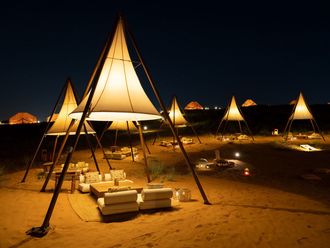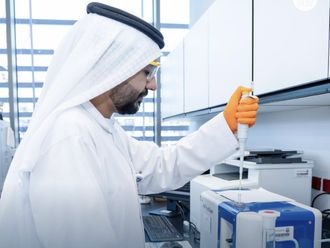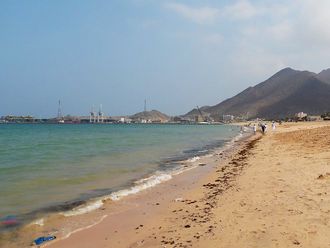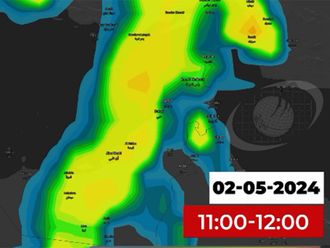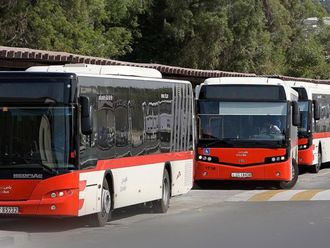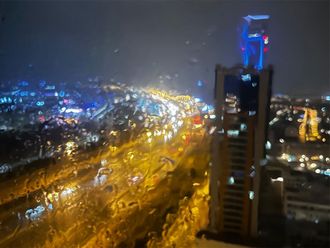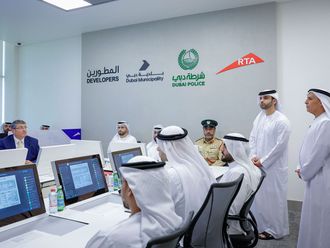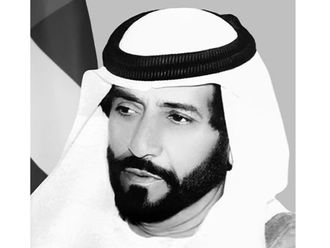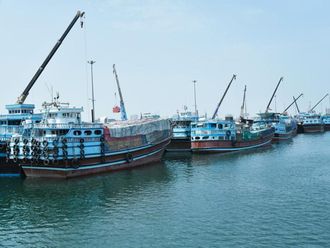Dubai: Nine desalination experts have been appointed to monitor the impact that the processing of seawater into drinking water may have on the Arabian Gulf's marine ecosystem.
The specialists will form the International Desalination Association's (IDA) environmental taskforce.
The move follows a call in November by regional leaders and scientists at the IDA world summit in Dubai for more research on sustainable water production.
"The desalination industry is growing very fast in the region and there is growing concern as to what the side effects of the industry are going to be, largely in an environmental dimension," said International Centre for Biosaline Agriculture Director General Shawki Barghouti.
Barghouti is one of nine members of the task force.
Barghouti said the biggest challenges the water desalination industry faced was high energy consumption and the effect of brine and chemicals on the Arabian Gulf and its shores.
"If this is not addressed, there might be a sizeable environmental impact," he said.
The UAE is the second largest producer of desalinated water in the region after Saudi Arabia. More than 30 desalination plants produce 1.3 billion cubic metres of water annually.
Desalination meets 98 per cent of the UAE's water needs. It is estimated that by 2020, daily production could be between five and seven billion cubic metres of water.
"Brine is a major area of concern," Barghouti said.
"There are requirements for brine [discharge] and rules and regulations have to be put in place to monitor the extension of the industry.
"Reducing the environmental impact is our priority, other issues will certainly come to the fore.
"We have to study how fast concentrated brine disperses. The Arabian Gulf is 1,000km long and its water takes eight to nine years to fully circulate. At this rate [discharged] salt moves two metres a day which means it could stay in an area for five to six days."
He said many countries were using more desalination but little research had been conducted on how it affected the environment.
Another panellist is Dr. Sabine Lattemann, a marine scientist from the German Environmental Protection Agency. In 2009 Gulf News reported that Lattemann found Gulf distillation plants discharged more than 1,000 cubic metres of waste water per second.
Gulf countries flush nearly 24 tonnes of chlorine, 65 tons of antiscalants used to clean pipes, and around 300kg of copper into the Arabian Gulf every day due to desalination.
On the panel
The International Desalination Association's Environmental Taskforce's panellists are: Dr Shawki Barghouti, director general, International Centre for Biosaline Agriculture; Dr Sabine Lattemann, marine researcher, German Environmental Protection Agency; Dr. Mahmoud Abdul Jawad, Principal Research Scientist at the Kuwait Institute for Scientific Research (KISR); Dr. Samer Adham, Managing Director of the Global Water Sustainability Center (GWSC) in Qatar; Dr. Gary Amy, Director of the Water Desalination and Reuse Centre, and Professor of Environmental Engineering at the King Abdullah University of Science and Technology (KAUST) in Saudi Arabia; Raed Bashitialshaaer, researcher and staff member at Lund University-LTH, Water Engineering; Dr. Paul Frederick Holthus, founding Executive Director of the World Ocean Council; Mark Silverton, currently a lead Environmental Consultant with 5 Capitals and Jos van Gils from Delft Hydraulics (now Deltares).
The steering committee in place consists of Dr. Abdul Majeed Ali Al Awadi, Task Force Chairman; Lisa Henthorne, Co-Chair; Michel Canet, Ghassan Ejjeh, Fady Juez and Tom Pankratz.
The IDA will hold an environmental symposium, "Desalination and the Arabian Gulf: The Relationship between the Environment and Meeting the Region's Water Needs" in December in Bahrain to develop strategies to fix environmental issues.


